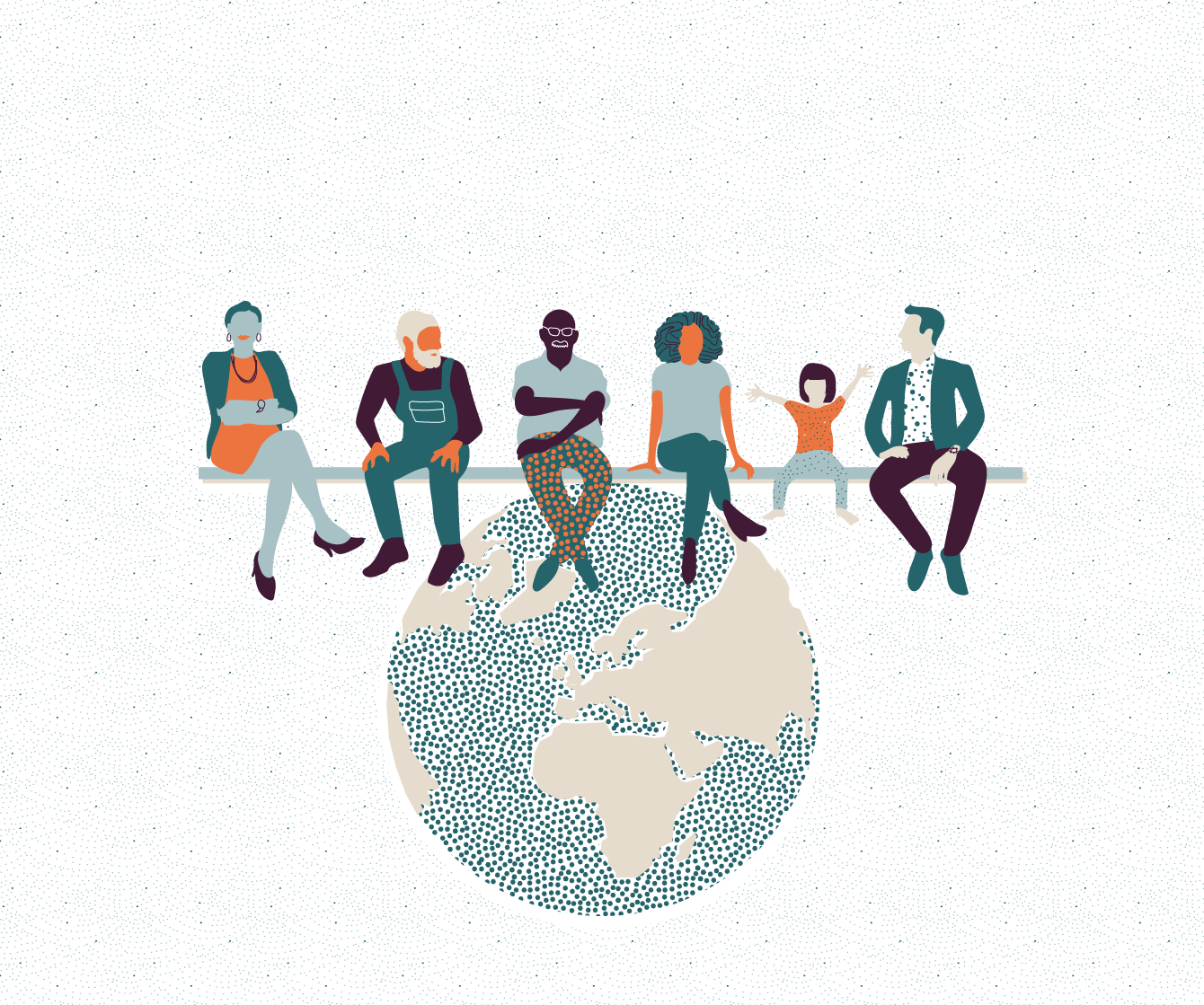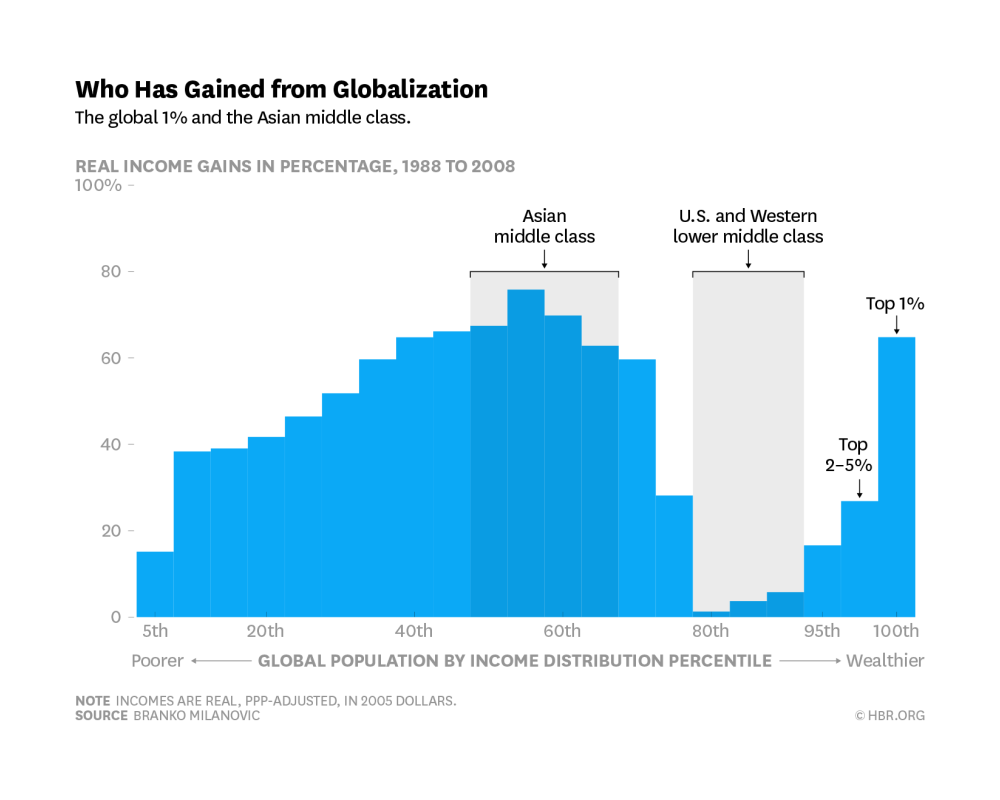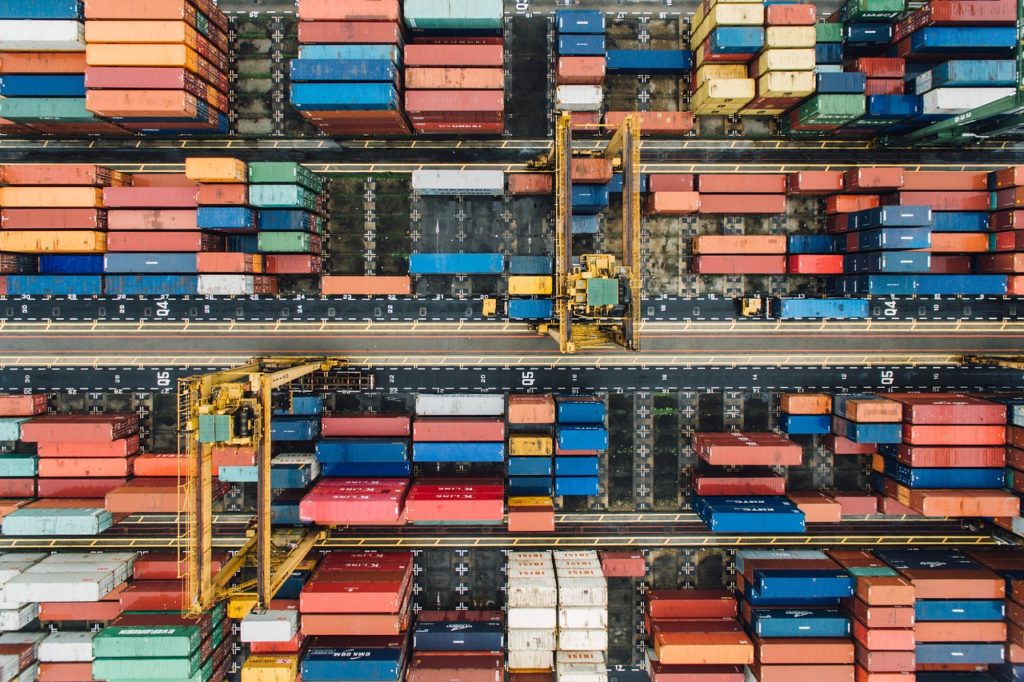






Globalization
for all
GLOBALIZATION
FOR ALL
After three decades of poorly managed integration, globalization is threatened by social discontent and the rise of populist forces. A new paradigm will need better ways not only to compensate the groups that have lost, but to distribute the gains more broadly from the start.
LATEST NEWS

From export miracle to German crisis – With Wolfgang Muenchau and comments by Sander Tordoir

KNOWLEDGE BASE
GLOBALIZATION
FOR ALL
The Challenge
The long post-war wave of globalization has come to a halt and the world economy is now threatened by disintegration.
What Went Wrong
Liberalizing international trade will lift all boats, since the losers from globalization can easily be compensated.
New Economy in Progress
Globalization produces discontent and policy needs to take costs and compensation more seriously.
5 WAYS THAT ARE DISCUSSED TO MAKE GLOBALIZATION WORK FOR ALL
CHART: WHO HAS GAINED FROM GLOBALIZATION?

From a Better Understanding of the Drivers of Populism to a New Political Agenda
Forum Working paper series - a new contribution by Robert Gold on the drivers of and measures against populism
The roaring globalization of the 2020s? Harold James says a new golden age of globalization is approaching
Princeton professor Harold James explains why the current crisis, like past crises, could trigger a new push for globalisation - on 26 May at our VIII New Paradigm Workshop.
New Economy Working Paper – How to reduce Germany’s current account surplus
Trump will go. But what about US complaints about Germany’s export surplus? Probably not, argue Achim Truger, Jan Behringer and Till van Treeck in an upcomming Op-Ed for the SZ which is based on a study for Forum New Economy.
Germany's current account surplus with Matt Klein and Till van Treeck
In the fourth edition of our New Economy Short Cuts we discussed Germany's current account surplus with Matt Klein and Till van Treeck. Watch the video here.
The Global Consequences of Germany’s “Educational Imperialism”
Matthew Klein describes how Germany's export strategy is damaging Europe and the rest of the world.
Digital Global Solutions Summit: Global Table
The Future of Multilateralism and Global Governance - Curated and produced by Forum New Economy
What were the Driving Forces in the 2019 UK General Election?
Thiemo Fetzer with an analysis.
Populism and the economics of globalization
Dani Rodrik on populism.
Shifting paradigms in global trade
By Sebastian Dullien, HTW Berlin – University of Applied Science













